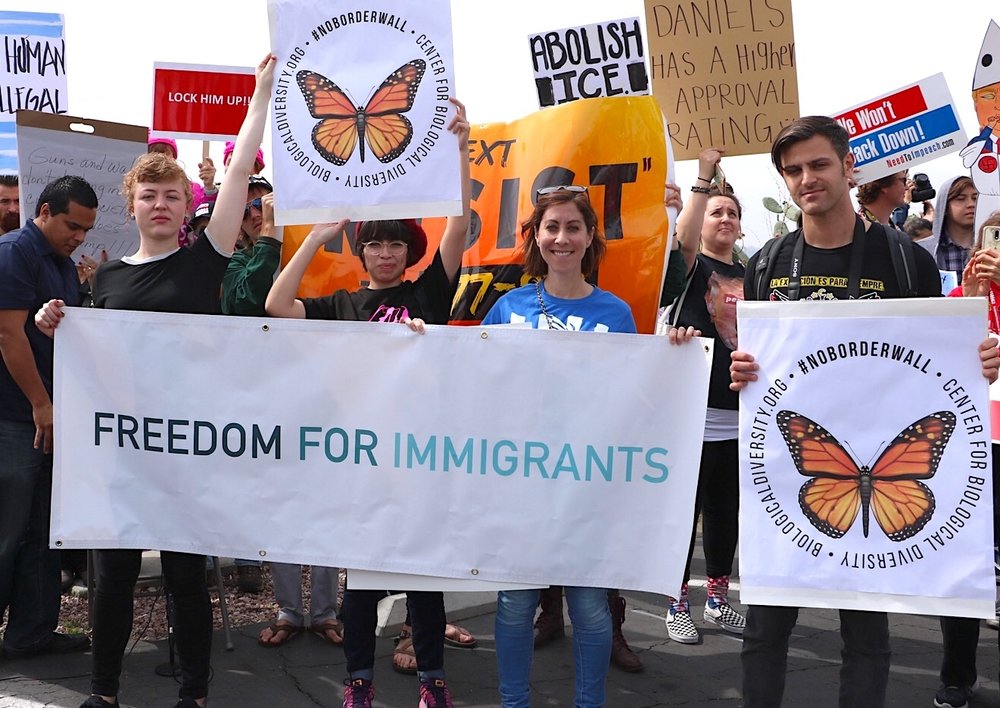- About
- Topics
- Story
- In-Depth
- Picks
- Opinion
- News
- Donate
- Signup for our newsletterOur Editors' Best Picks.Send
Read, Debate: Engage.
| March 12, 2019 | |
|---|---|
| topic: | Refugees and Asylum |
| tags: | #Italy, #immigration, #Italian Refugee Council (CIR), #Five Star Movement, #asylum |
| located: | Italy |
| by: | Federica Tedeschi |
The decree-law, named after the leader of the far-right party ‘La Lega’, Matteo Salvini, concentrates on immigration and security measures and aims to restrict immigrants’ access to the country and limit or even cancel the rights of those already living in Italy.
Main changes include the end of the two-year ‘humanitarian protection’ residency permits, a lower level of asylum status based on Italian law. During the five years before the law came into force, humanitarian protection was the most common ‘status’ awarded among all successful asylum seekers applications (25% of cases), according to the Institute for International Political Studies (ISPI).
It will be easier now to strip migrants of Italian citizenship, while residency permits will be awarded under strict conditions such as a one-year special protection status or a six-month natural disaster in country of origin status. Under the new law, which is made up of 42 articles, a new procedure to fast-track the expulsion of dangerous asylum seekers will also be put into force. Cases include those who have been linked to terrorism.
Big questions remain unanswered for those who already have humanitarian protection, as they won’t be allowed to renew it under the new law, except for very specific cases. Even then, a temporary renewal is all those people can aspire to.
And a loss of protection could easily translate into a surge of illegal immigrants.
‘We can foresee the unpleasant consequences of this decree’, said ISPI researcher Marco Villa, while explaining how the Institute has calculated that there will be a 26 % increase of illegal immigrants by 2020. The Italian National Institute of Statistics (ISTAT) confirms the data by estimating that the decree will make 130,000 migrants illegal during the same period.
‘Legal foreign residents are responsible for roughly the same amount of crime as Italian people. However, illegal immigrants commit twenty times more crimes than nationals. The number of offences is not linked to their nationalities, in fact, it is all due to the fact that these people are marginalised’, added Mr Villa.
Meanwhile, Matteo Salvini, who is also a deputy prime minister, risks trial for kidnapping: last August the leader of La Lega stopped over 150 Libyan migrants from getting off a coast-guard ship that had rescued them in the Mediterranean. The boat stayed in port of Catania for five days, during which all those on board underwent neglect and suffered distress.
At the beginning of 2019, a court decided that Mr Salvini should be indicted for illegally detaining them, though the prosecutors who investigated his conduct asked that the case be shelved. To avoid prosecution, however, the right-wing leader needs the votes of M5S, which is the other party of the coalition government.
During a live interview on the RAI TV channel in January, Mr Salvini explained some of the reasons behind the new law and highlighted the severity of wrongdoing happening around immigration:
‘Immigration in Italy used to generate a 6 billion euro business up to last year. Many pseudo entrepreneurs previously working with the elderly and people with disabilities, switched to immigration over the years and their profits soared tenfold’.
Stressing that all this has to stop, Mr Salvini reminded the RAI journalists that ‘not only boat drivers invest the money they make from the poor immigrants, in drugs and weapons, but far too often human traffickers are making scapegoats of migrants and we should certainly stop this from happening’.
Looking into the politician’s further declarations, there seems to be another strong reason for concern about immigration: ‘We cannot welcome everybody. There are already 60 million people in this country, 6 million of whom live below the poverty line, including 1 million children, plus we have 3 million unemployed citizens’.
The present government* has repatriated around 500 migrants per month so far and with more ‘repatriation funds’ now available under the new law, even more people might be forced to leave the country over the next few months.
On top of that, Salvini has decided to close all big refugee shelters, defying them ‘places which lead to a waste of resources in the best-case scenario, not to mention the amount of crime and fraud happening within their premises’. Small shelters, which can be run more smoothly, are also more likely to operate with integrity and trust.
However, the collapse of the Protection System for Asylum Seekers and Refugees (SPRAR), which consists of asylum-seeker reception centres, will create new forms of marginalisation and social exclusion that could increase the risk of conflict, according to the Italian Refugee Council (CIR), an independent humanitarian organisation formed at the initiative of the United Nations.
CIR also believes that the new law does not provide adequate guarantees for vulnerable people or those with particular needs such as victims of abuse and/or torture.
Following the decree approval, protesters gathered up and down the country last December, also attracting and involving a number of small towns like Alba, located in the North-West of the country.
*The populist coalition government made up of the far-right League and anti-establishment Five Star Movement took power in Italy last April.
By copying the embed code below, you agree to adhere to our republishing guidelines.
